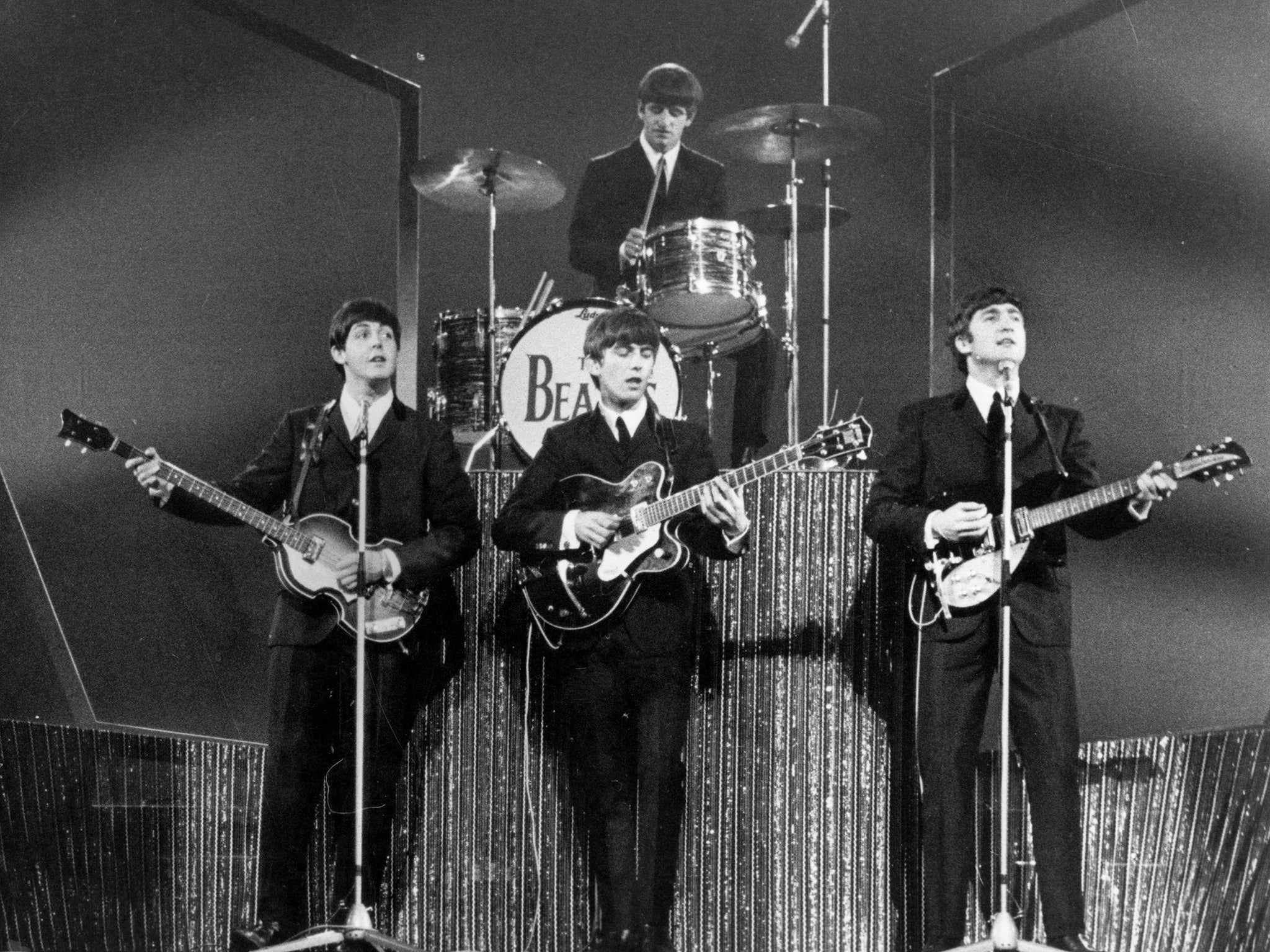Happy birthday to Guinness, whose books of feats and fantastic facts show us what it is to be human
Behind all this excitement lurks the presumption that attainments of this kind are vitally important

Some years ago, stepping down from the platform at the Oxford Literary Festival, I was waylaid by an elderly gentleman with white hair bearing a book for signature. “Perhaps you could put ‘To Roger’,” he somewhat diffidently proposed, whereupon recognition, borne on the memory of many an ancient newsreel and bygone sporting primer, suddenly dawned. “Are you Sir Roger Bannister?” I wondered. Sir Roger admitted that he was. “Well in that case,” I assured him, trembling with the excitement of meeting a genuine sporting hero in the flesh, “I really ought to be asking you for your autograph.”
Naturally, Sir Roger has always had a special place reserved for him in the Guinness World Records, whose 60th anniversary was celebrated last week, as the athlete who, on the Iffley Road track in 1954, first ran a mile in under four minutes. It is a mark of the evanescence of most sporting records that, by the time the first Guinness compilation appeared in 1955, this figure – three minutes 59.4 seconds – had already been bettered, by Australia’s John Landy, and that six decades later it should be as low as three minutes 43.13, suggesting that were Bannister’s younger self to be competing against the world’s best here in the 21st century he could be expected to lose by the length of the finishing straight.
Much of the publicity attending the Guinness anniversary has, understandably, focused on this kind of exponential betterment; the fact that, for example, the world’s tallest structure has almost doubled in height (at 1,453ft, or 443m, the Empire State Building now looks horribly puny compared to Dubai’s Burj Khalifa at 2,716ft), while Usain Bolt’s 100m time of 9.58 seconds makes the handful of athletes stalled at 10.2 in 1955 seem well-nigh amateurish. On the other hand, there is a faint satisfaction in knowing that certain records are apparently immutable – the world’s tallest ever man is still Robert Pershing Wadlow at 8ft 11in – or, like the men’s long jump (up 5cm in 47 years) seem condemned to only the tiniest incremental shifts.

There are even records that, mysteriously, have gone down before they went up again. At any rate the late Jeanne Calment’s current status as having reached the oldest age (122) is tempered by the knowledge that in the early 1970s the bar was lowered by a couple of years to 113, various unreliable 115-year-olds having failed to produce birth certificates or other corroboration. The same adjustments were made to various athletics times and distances achieved thousands of feet above sea-level before the authorities decided that high-altitude competition offered an unfair advantage, which lends a curious kind of existential sleight-of-hand to the proceedings. After all, the world’s fastest man is still the world’s fastest man, even if he achieves that feat half-way up Mount Kilimanjaro while being chased by a couple of cheetahs to the statistician’s evident despair.
And behind all this excitement lurks the presumption that attainments of this kind are vitally important, and that a news programme otherwise given over to wars, floods and pestilence ought to be interrupted by the revelation that one man has just run a short distance a split second faster than another one. Isaiah Berlin once divided humanity into hedgehogs and foxes. For Anthony Powell, the separation was between “agents” and “patients”, that is, the people who do things and the people to whom things are done. But an equally valid distinction would be between the people who value the “feat”, however theoretically futile or non-utilitarian, and those who spurn it. I can remember haring into the room back in 1988 to announce the – to me – earth-shattering news that the soon-to-be-disgraced Canadian sprinter Ben Johnson, sustained by a six-pack of steroids, had run the 100m in the then world record time of 9.79 seconds and getting only a puzzled frown in return. “Why couldn’t he run it in seven seconds? Or six?” Rachel demanded, who perhaps had not yet appreciated quite how much, to a certain kind of (usually male) sports fan, these things matter.

But matter they clearly do. The absolute seriousness with which Guinness Superlatives goes about its mission to uncover the shortest time which it takes to, let us say, eat a bicycle (hats off to the legendary and now deceased Monsieur Mangetout) was brought home to me back in the 1980s when, as a young Turk scrabbling for a foot-hold on literary London’s north face, I ended up helping to assemble one of their books. The Guinness Book of Speed Facts and Feats had a section on the mechanical world, containing the expertly distilled knowledge of a delightful ex-RAF man called Bill Gunston, and a section on the human equivalent cobbled together in a week and a half from existing information by yours truly.
It is a measure of my naivety that I assumed that the editorial conferences regularly convened to monitor progress would be at least semi-jocular in tone. No one, I told myself, could really take any of this seriously. By contrast, nothing could have exceeded the gravity with which we sat and discussed the world’s fastest ever LP recording session (a palm which eventually went to the Beatles’ Please Please Me, with a highly commended to the Jam, who were supposed to have recorded some of the backing vocals for their first album In the City in a lift between studios) or literature’s speediest writer (a strong showing from the Edwardian diarist A C Benson who is thought to have composed two hymns needed for a royal christening on the train between London and Horsted Keynes).

For ultimately what emerges from the news that India’s Gul Mohammed (57cm) has lost the title of the world’s shortest man to Nepal’s Chandra Bahadur Dangi (56cm) is a sort of elemental humanism, the thought that what individuals strive to do, or to perform, or even what they are, has an almost mythological resonance. It was Martin Amis, reviewing the 18th incarnation of the series as long ago as 1971, when new features included sections on beagling and Gaelic football, who remarked, without obvious irony, that “every superlative in the book does something towards increasing one’s conception (there is – unfortunately – no other way of putting it) of what being Homo sapiens entails.” (Mart was particularly fascinated by “The Human Body” section which he claimed to read “with annually renewed horror”.) Purists would probably allege that Guinness World Records has dumbed down a bit in recent years under pressure from such shock-jock competitors as Ripley’s Believe It or Not! and that a great deal of spectacular erudition (“In Chinese the fourth tone of ‘I’ has 84 meanings, varying as widely as ‘dress’, ‘hiccough’ and ‘licentious’, etc”) has been sacrificed to passing fads.
Still, though, it continues to offer an infallible guide to a part of the national psyche, the part that 150 years ago took pleasure in John Lennon’s Mr Kite performing his “somersets” while passing through a “hogshead of real fire”, the part Virginia Woolf identifies in her famous essay about the 19th-century fox-hunting squire Jack Mytton, which begins with the holidaying lady on Brighton Pier watching “Madame Rosalba” diving for soup-plates.
“For the truth is we like these exhibitions of human nature,” Woolf concludes, these showmen (and women) like Madame, who “with a look of indifference and satiety as if she had renounced and suffered and dedicated herself to some insane act of defiance for no pleasure of her own, dives into the Channel and brings up a twopenny-halfpenny soup-plate between her teeth.” It is for this reason, the lady on the pier decides, “that I love my kind”, and for a reason very close to it that no literary festival was ever more memorable to me than the one at which Sir Roger Bannister shuffled modestly across and asked me to sign his book.

Join our commenting forum
Join thought-provoking conversations, follow other Independent readers and see their replies